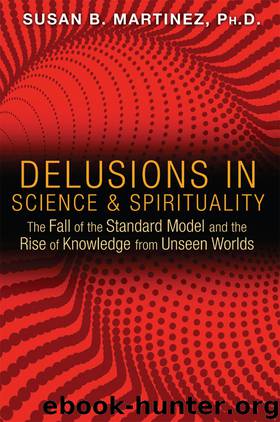Delusions in Science and Spirituality by Susan B. Martinez

Author:Susan B. Martinez
Language: eng
Format: epub
Tags: New Science/Spirituality
Publisher: Inner Traditions / Bear & Company
Published: 2015-03-16T04:00:00+00:00
Moment of Birth
Astrology portrays the newborn as some sort of sensitive photographic plate whose destiny is decided by the stellar influences that converge at the moment of his first cry. But some have asked: Why not draw the horoscope from the time of conception, rather than birth? It is, after all, the moment when all the hereditary factors come into play, when new life is sparked in the seed of the womb. Indeed, Pope Francis says an individual life begins at conception. How, also, is premature birth to be regarded? Or one caused by surgical intervention? If it was the doctor’s decision that determined the hour of birth, would this change the astral influences, making the child’s whole future life an artificial one?
The moment-of-birth issue sets off another question: What about twins? Do they have the same destiny? Biologists say that when twins share an idiosyncrasy, it is inherited. Sociologists say that when twins share an idiosyncrasy, it stems from the family environment. Astrologers say that when twins share an idiosyncrasy, it is their shared natal sign. Gay and straight male twins (studied by Sven Bocklandt at UCLA) pose a stumbling block for astrology.
The argument goes all the way back to the Stoics, who pointed out the entirely dissimilar fortunes and lives of those born at the same moment. In one story told by St. Augustine in City of God, two children are born at the same time in the same household. One is born of the master and the other of a slave. The position of the stars do not change their fate. “Nobody,” admits Gauquelin, who is otherwise pro-astrology, “has succeeded in showing similarities in the lives of people born the same day of different parents. . . . Social conditions explain the pattern of a life better than the stars do” (St. Augustine 1967, 77). This is what Zarathustra meant when he spoke to King Asha of the “corporeal surroundings” rather than the “stars, moon, or sun.”
Download
This site does not store any files on its server. We only index and link to content provided by other sites. Please contact the content providers to delete copyright contents if any and email us, we'll remove relevant links or contents immediately.
Enlightenment Now: The Case for Reason, Science, Humanism, and Progress by Steven Pinker(7305)
A Journey Through Charms and Defence Against the Dark Arts (Harry Potter: A Journey Through…) by Pottermore Publishing(4798)
The Immortal Life of Henrietta Lacks by Rebecca Skloot(4571)
A Journey Through Divination and Astronomy by Publishing Pottermore(4377)
Elon Musk by Ashlee Vance(4120)
Origin Story: A Big History of Everything by David Christian(3680)
COSMOS by Carl Sagan(3617)
Alchemy and Alchemists by C. J. S. Thompson(3510)
Bad Pharma by Ben Goldacre(3420)
Enlightenment Now by Steven Pinker(3364)
Shadow of Night by Deborah Harkness(3356)
Inferior by Angela Saini(3311)
A Mind For Numbers: How to Excel at Math and Science (Even If You Flunked Algebra) by Barbara Oakley(3294)
Origin Story by David Christian(3192)
The Code Book by Simon Singh(3175)
Signature in the Cell: DNA and the Evidence for Intelligent Design by Stephen C. Meyer(3125)
The Elements by Theodore Gray(3050)
A Brief History of Time by Stephen Hawking(3022)
A Journey Through Potions and Herbology (A Journey Through…) by Pottermore Publishing(2844)
